A new community for folks who are passionate about supporting sustainable agriculture is being created, and I had the opportunity to speak with its project manager Dave Boehnlein. He shared how his love of permaculture has shaped his life and ultimately led to co-founding Rooted Northwest, Western Washington’s newest AgriVillage.
Dave grew up in a small town in Wisconsin and studied natural resources, environmental studies, forestry, and recreation resource management at university. He worked in a computer lab for a few months during this time and very quickly realized that indoor computer work was not for him. Instead, he began teaching outdoor education to high school kids in the summers and traveling in the winters.
He first heard the term ‘permaculture’ while volunteering for a bird research and reforestation project in Costa Rica. He happened to catch the last couple days of a permaculture design course and was intrigued: it was so different from how he had approached land stewardship previously. He was inspired to travel with a group of permaculture enthusiasts and take a design course in Nicaragua. During that time, he distinctly remembers the moment he realized he wanted to spend his life pursuing permaculture. “I remember going to an intentional community down there and one afternoon I sat in their common house kitchen and my brain was just vibrating so I just dumped it all out on paper, I wrote and wrote and wrote. That was over 20 years ago and interestingly I came up with a vision and a path that I am still following, which ends with providing education on a permaculture site where I live.”
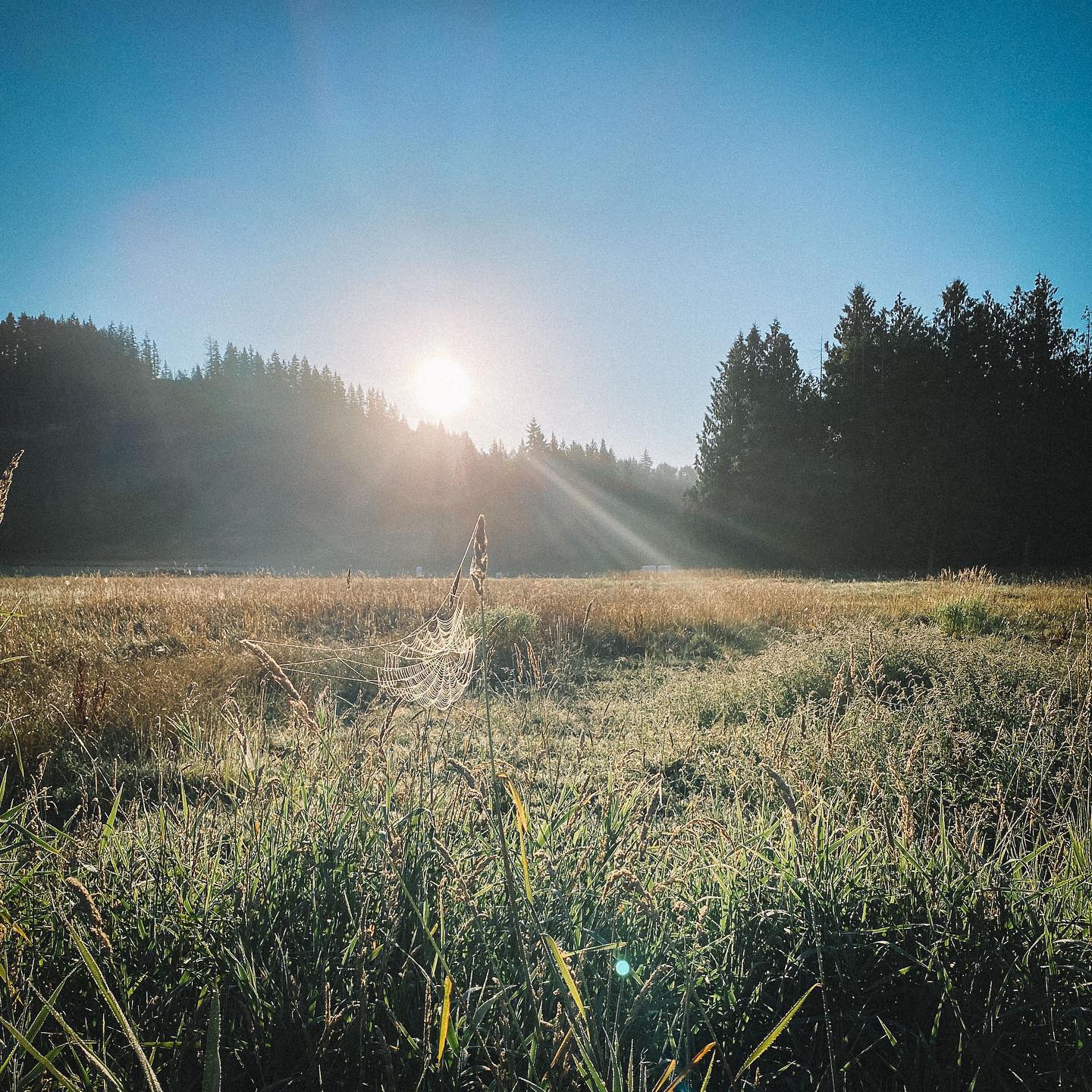
Returning to the States, he interned at the Bullocks Permaculture Homestead on Orcas Island in Washington State, which was a hotbed for permaculture education. “I only intended to spend one growing season there, well seven years later I was still there,” Dave laughed. “I was their education director, their general administrator, their intern program coordinator, newsletter editor, webmaster, and I got to really cut my teeth on doing a lot of stuff. I was growing annuals, perennials, managing chickens and ducks, we were building projects, all kinds of things.”
Dave’s time at the Bullock’s place was radically different from the average 20-something’s life and this early experience was instrumental in shaping his concept of what sort of lifestyle is possible. “I was living in a small one room cabin with no electricity. Every morning I came down the hill where we had a shared community kitchen, and we would have cooking shifts and we shared meals together.” This lifestyle felt right to Dave.
Eager to apply his background in education to the permaculture sphere, he contributed to his first big design project after a course Doug Bullock was teaching in Hawaii. This led to the launch of a design company called Terra Phoenix Design with Doug Bullock and Paul Kearsley which helps with permaculture master planning projects all over the world.
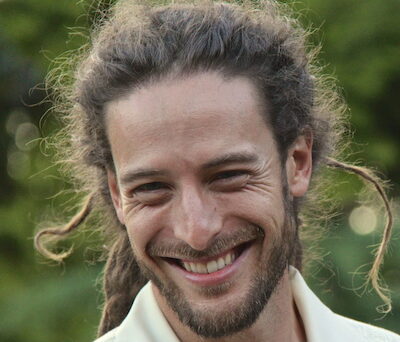
In 2011, Dave moved to Seattle with his wife-to-be, Yuko Miki, and worked with Jessi Bloom to write Practical Permaculture. While he never intended to stay long in his South Seattle apartment, it did not stop him from planting all the street trees as fruit trees, putting in raised beds, building up the soil, and growing peppers, cucumbers, tomatoes, and anything else he could. His thought process was, “I’m gonna go crazy if I can’t do fruit tree pruning and growing vegetables and all the things that I love to do, so I’m gonna do as much of it as I possibly can right here, gotta keep my sword sharp for when I actually do get big land.” When he moved onto the Rooted NW property, he left it all behind.
But he has no regrets. “What if everybody thought about things that way and it wasn’t about, ‘why would I spend $30 on a fruit tree that I’m going to walk away from.’ That thinking process means nobody gets to move into a place with a kickass fruit tree. Wherever you’re at, get started. Don’t be always thinking about this mystical future that’s somewhere far off that may or may not happen. Get the ball rolling and just ‘cause you have to walk away from it doesn’t mean that it wasn’t worth doing.”
He has always been a strong advocate for living what you teach and wanted a chance to demonstrate permaculture on a large scale. This led to a conversation with Yuko and friends Ed and Elina about beginning an intentional agricultural community. They defined their vision and values early on, recognizing that others who resonated with those ideas would join them. “The people we’ve brought in are all very passionate about ecological stewardship, responsibility, and all the things in our vision and values,” Dave affirmed.
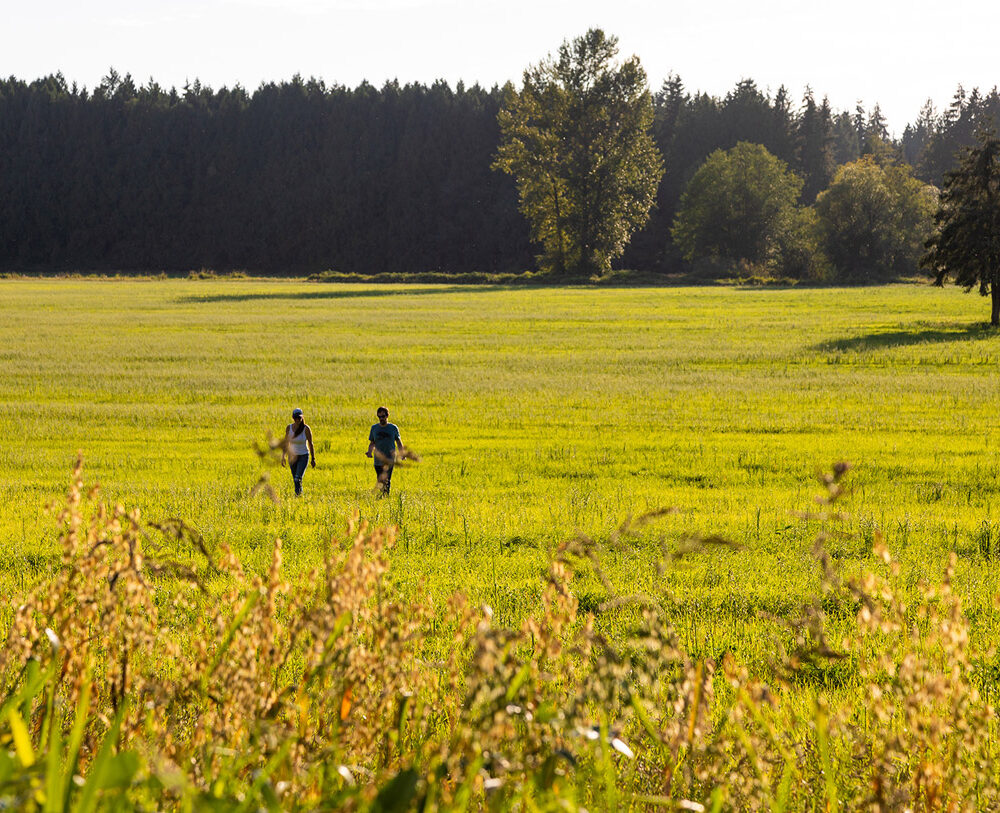
Once they had an idea of what they wanted to do, the team followed one of the principles of permaculture: start with observation and research before jumping in and acting. “People have been trying to pull off these sorts of utopian communities forever, there is a huge amount of information about what does and doesn’t work. If we do this without doing our research first, we’re just gonna make the same mistakes that have been made fifty times. We don’t have the hubris to think we’re not going to make any mistakes; we just want our mistakes to be original. If we’re gonna screw this up, we’re gonna screw this up in completely new and unforeseen ways!” Dave laughed. They read books by Diana Leaf Christian and Liz Walker, they visited eco villages and cohousing and farming sites. They researched for about a year and a half.
Then they started looking for land.
The real estate search was challenging since they were looking for “a unicorn” and had different criteria from most land seekers. “Our primary goal was preserving farmland, everything else served that goal,” said Dave. They eventually purchased 240 acres east of Arlington, Washington, a portion of an old dairy farm that had been managed by a local family for over 100 years and never even hit the market.
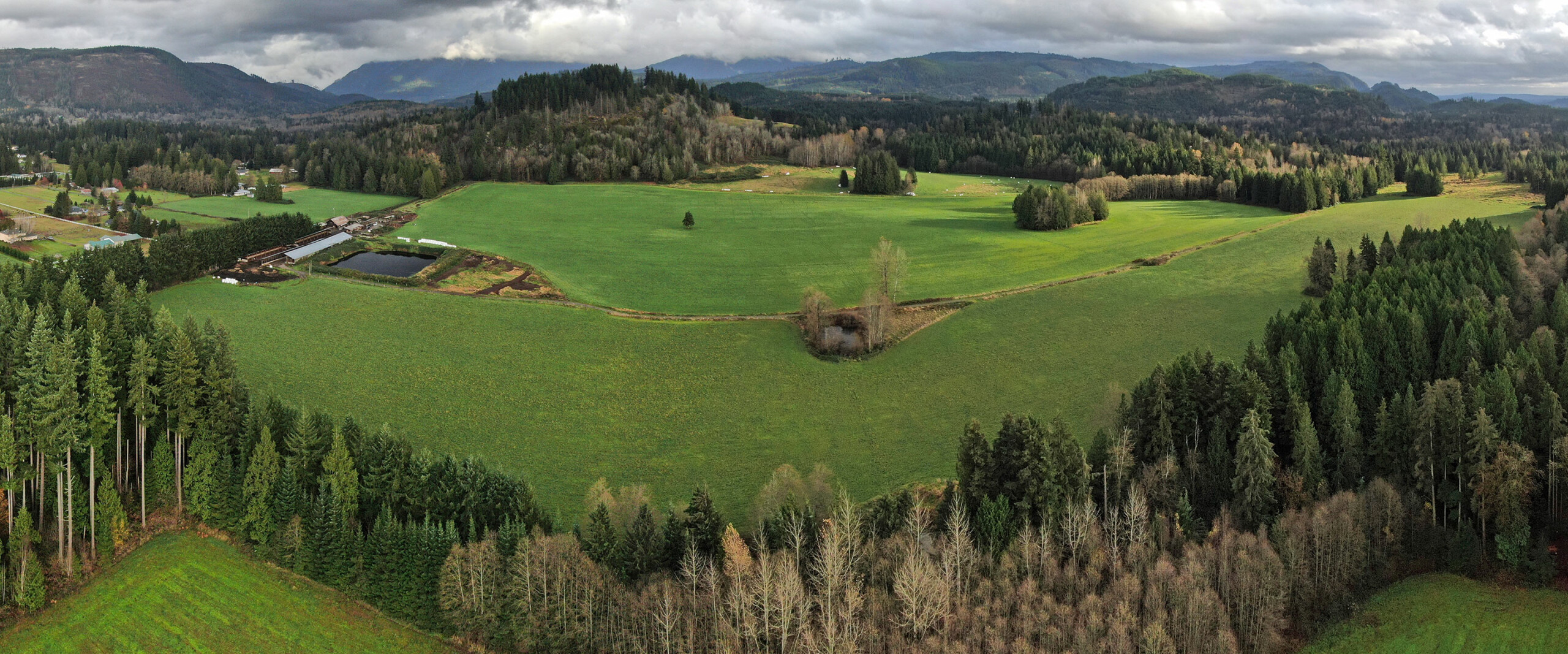
The vision for the village living is to have two neighborhoods of 35 homes each, each village within a five-acre envelope on the edges of the property on suboptimal farming land so as not to remove good production ground from the farm. “We really only use 4% of this land for the development area and 96% of this land gets preserved for farming and forestry which is radically different from what’s on offer in the standard pallet of development options with the County,” said Dave. They are working with the County to determine the logistics and legalities of this unusual use of property. “Tightly clustered communities of people that were surrounded by farmland and forest was the norm for a huge part of human history. We didn’t do much of that in the United States because land was so available when the colonists came, and we also have really pushed ourselves into a car driven culture. It’s not abnormal to drive an hour to go somewhere, so that means just more and more spreading out as opposed to clustering together,” explained Dave.
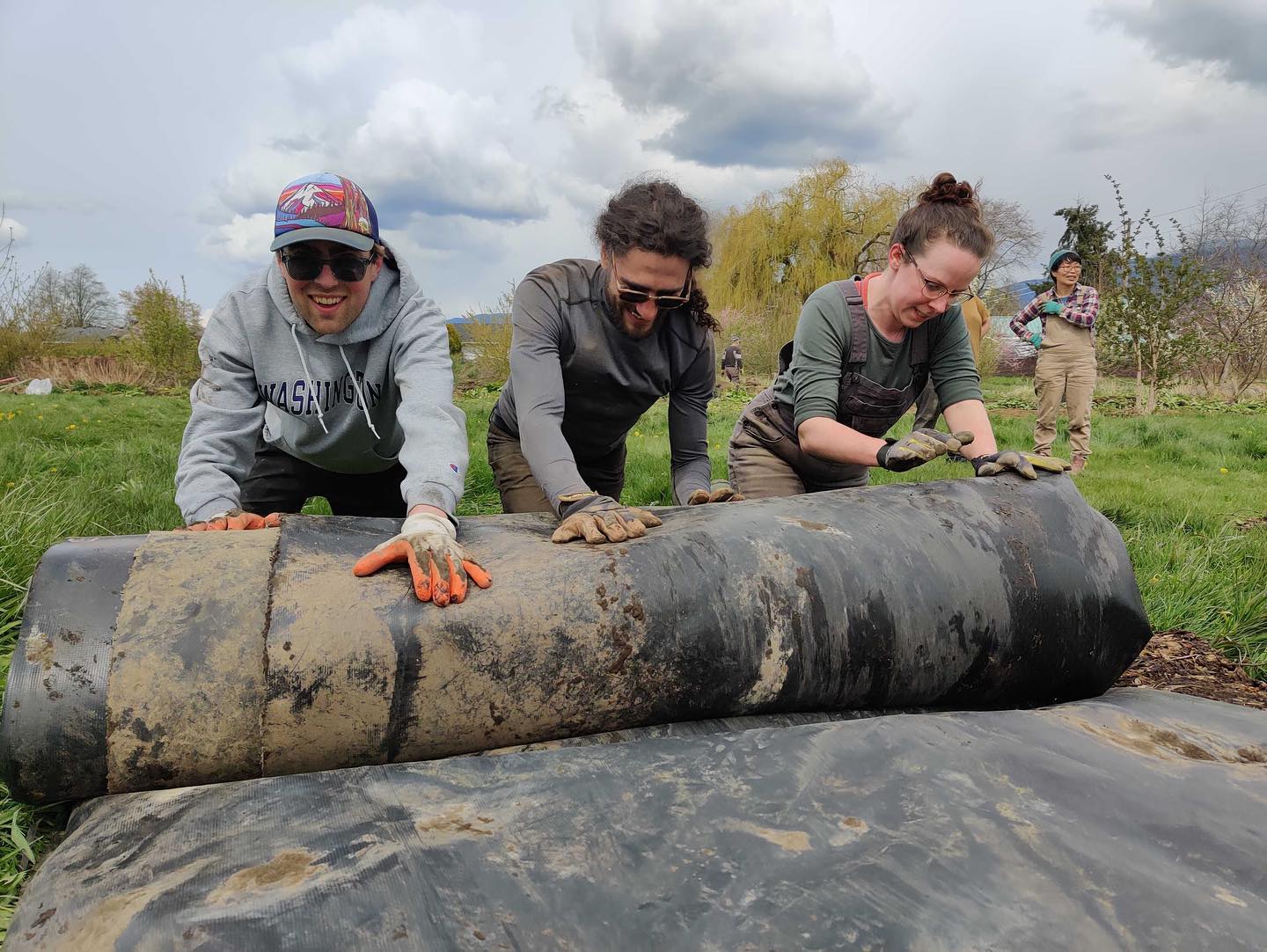
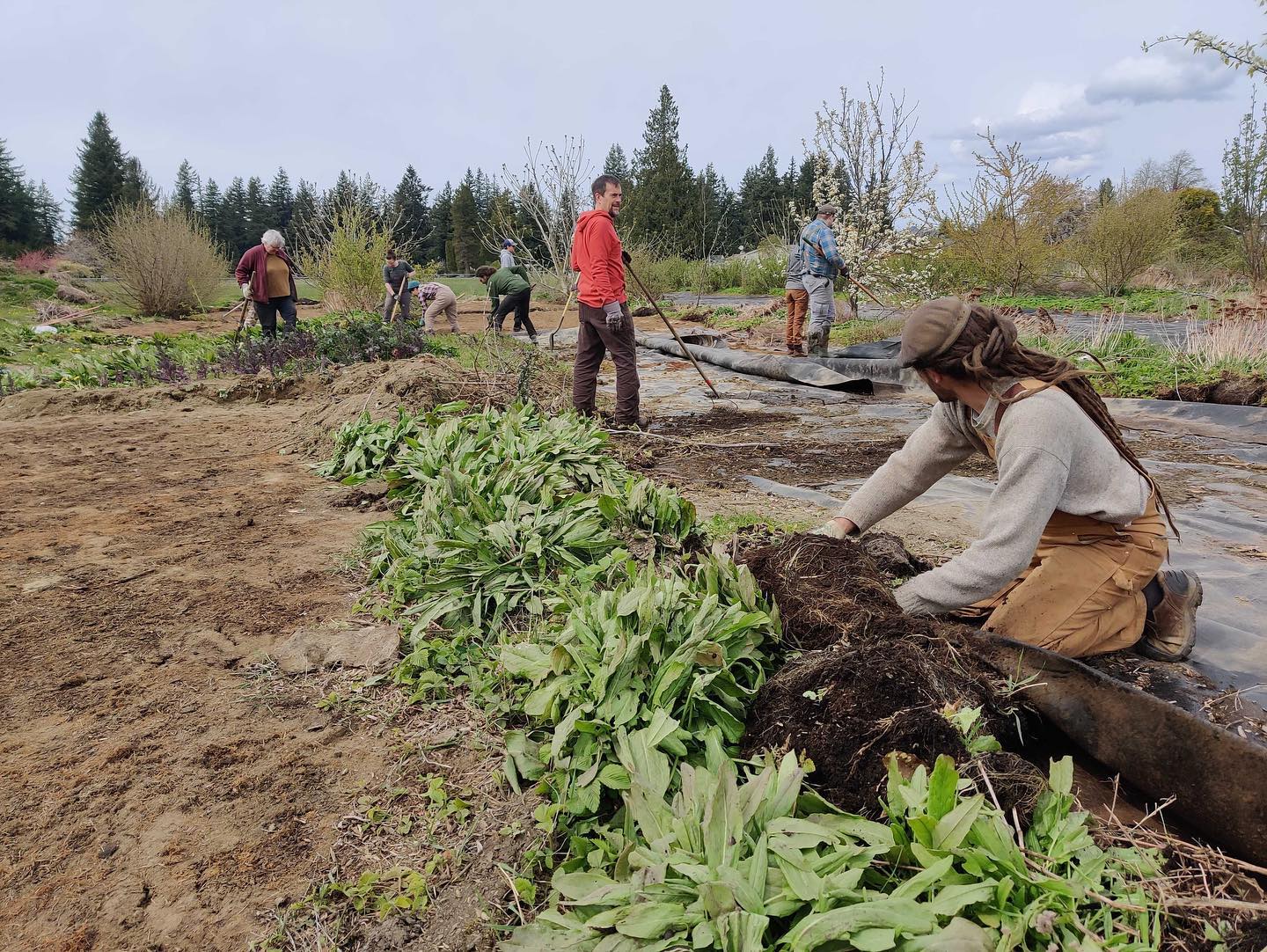
The Rooted NW villages will be modeled primarily after the co-housing model of Denmark, focusing on pedestrian orientation and the concept of chance encounters. Village parking is at the edge, so that as residents walk to their houses, they are passing other residents on their porches or in their yards. “You can just stop and have a beer with a neighbor on your way home from work and maybe it takes 20 minutes, but you still have that social connection happening, you are building that kind of social currency which I think is something that a lot of people are lacking.” Dave emphasized that farmers in particular often lack a sense of community given the fairly isolating model of the family farm.
Common house meals are another essential aspect of the village living concept. “You might come home from work, you might come in from the fields after having farmed all day, and instead of having to make dinner for the kids you can just walk over to the common house and there’s a meal and there’s a bunch of people and there are other kids. The kids can all go play in the playroom and you can have an adult conversation, and in exchange you’re the one helping prepare that meal every so often.”
The Rooted NW team settled on a governance model of sociocracy, which many similar communities are beginning to use. They plan to allow for a variety of farming enterprises to take place, from the small-scale vegetable gardener who needs just a couple of acres to grow organic produce for the CSA to a grass-fed beef rancher who needs 60 acres of pasture.
“One thing we’ve emphasized with every single person getting on board this project is you are moving to a farm! You are not moving to an urban cohousing community. That means chickens going buck, buck, bugawk early in the morning, that means the smell of manure in the air occasionally, that means maybe helping somebody bring in their harvest at 11:00 PM if it’s going to rain tomorrow. We’re actually curating people who are interested in being a part of it. The bar is that everybody here has to be wildly enthusiastic about farming and willing to help and support farmers.”
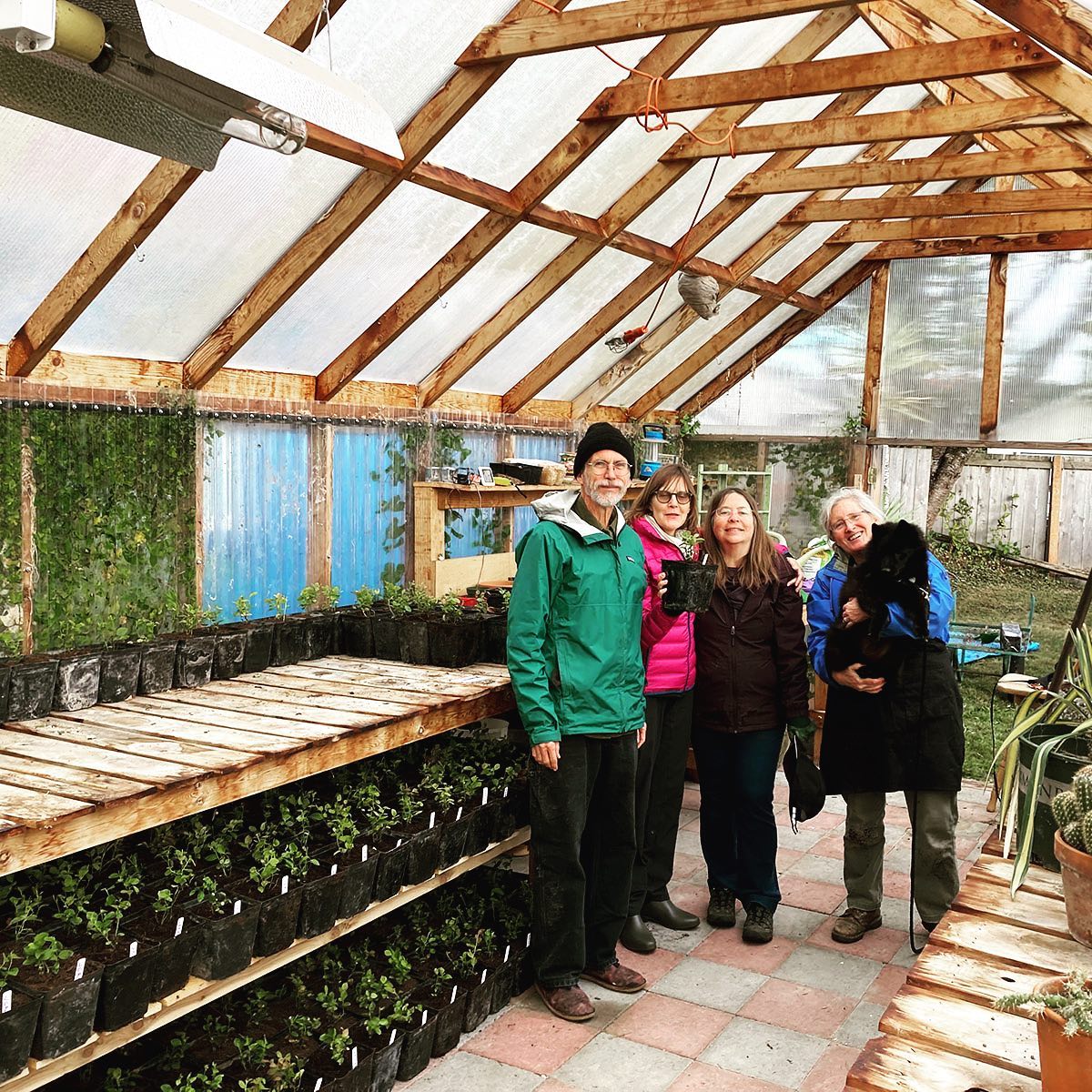
The piece Dave is most passionate about is educating folks about permaculture and sustainable land management. Dave jokes that “I have found the longest and most convoluted way to launch an education center you could ever have imagined. We’re just developing two neighborhoods and a multi-enterprise farm along the way, it’s no big deal,” he laughed. He scratches the educating itch by teaching permaculture design at Bastyr University, Santa Cruz Permaculture in California, and Pearlstone Retreat Center in Maryland, but he is excited to eventually teach and develop experimental test sites for agricultural practices on the land where he lives and works. How the educational piece rolls out will be based on the residents of Rooted NW and might include programs for school children, semester programs for college interns, or adult education for those in the midst of life transitions.
The holistic approach of permaculture is innately appealing to Dave. The term was coined by Bill Mollison and David Holmgren as a combination of the words permanent and agriculture. Bill Mollison worked in fishing, farming, and forestry as a young person and saw the environmental destruction that these practices were creating. He spent a huge portion of his time traveling the world and observing agriculture and the environment. “I think very quickly they discovered that it’s not just permanent agriculture, it’s how do we create a permanent culture, a culture that will get to stand the test of time on planet earth so that humans can be here over the long haul,” said Dave.
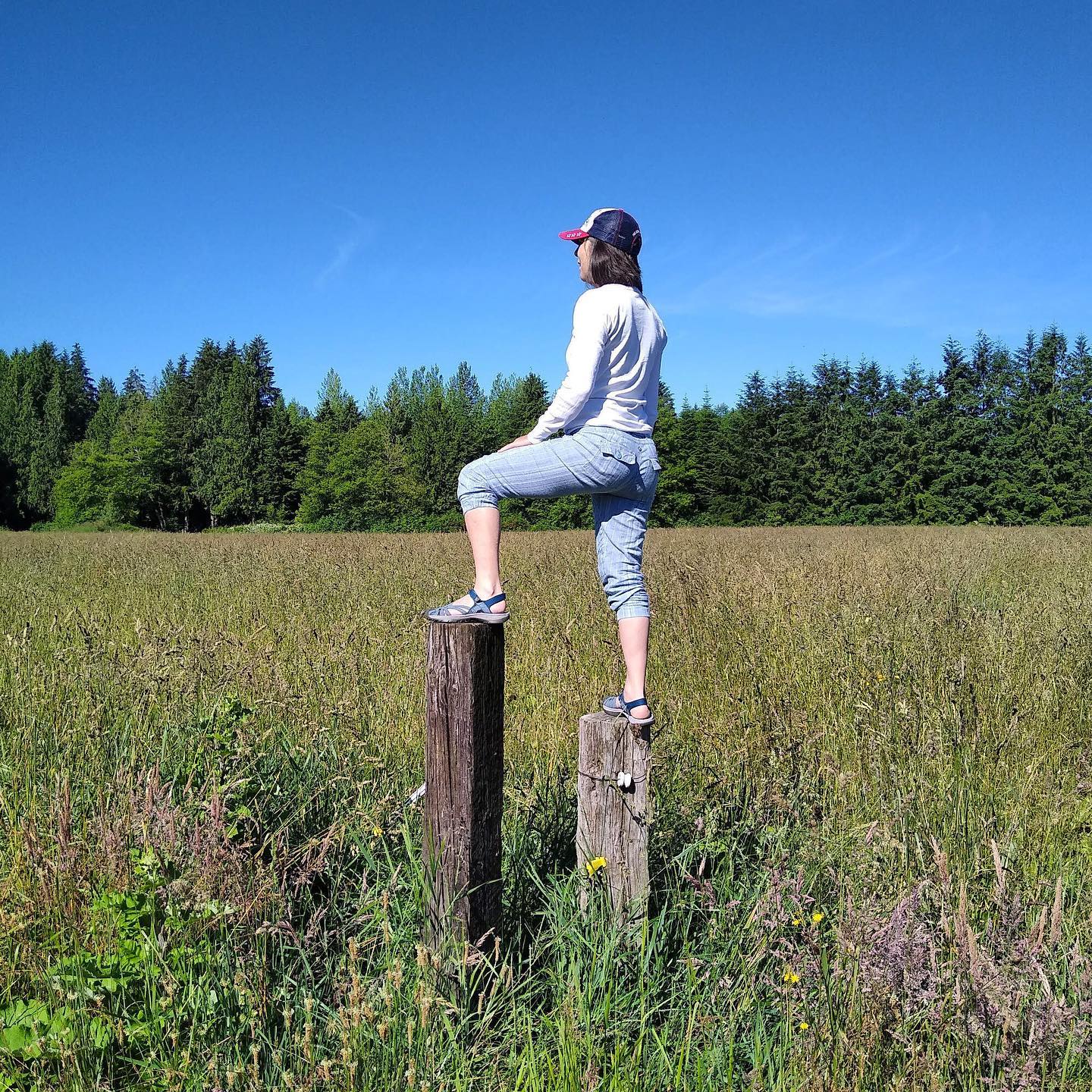
Many of us have become hyper specialized in our skill sets, to the point that, as Dave put it, “you have no idea what happens when you flush your toilet, if your toilet is not functioning you are just sunk, you have to call your plumber.” Permaculture promotes the idea that we need generalist knowledge in order to be able to act in ways that actually make sense in the world. Dave is a big advocate of building a subset of useful skills. “Imagine if you just take plumbing, electrical, and carpentry 101, just learn the basics, how the tools work, and all of a sudden you exist in the world as a different entity. You can interface with the things around you in a different way. Even if its simple stuff like figuring out what’s wrong with this light and fixing it, you have some level of control over what’s going on around you. It’s empowering!”
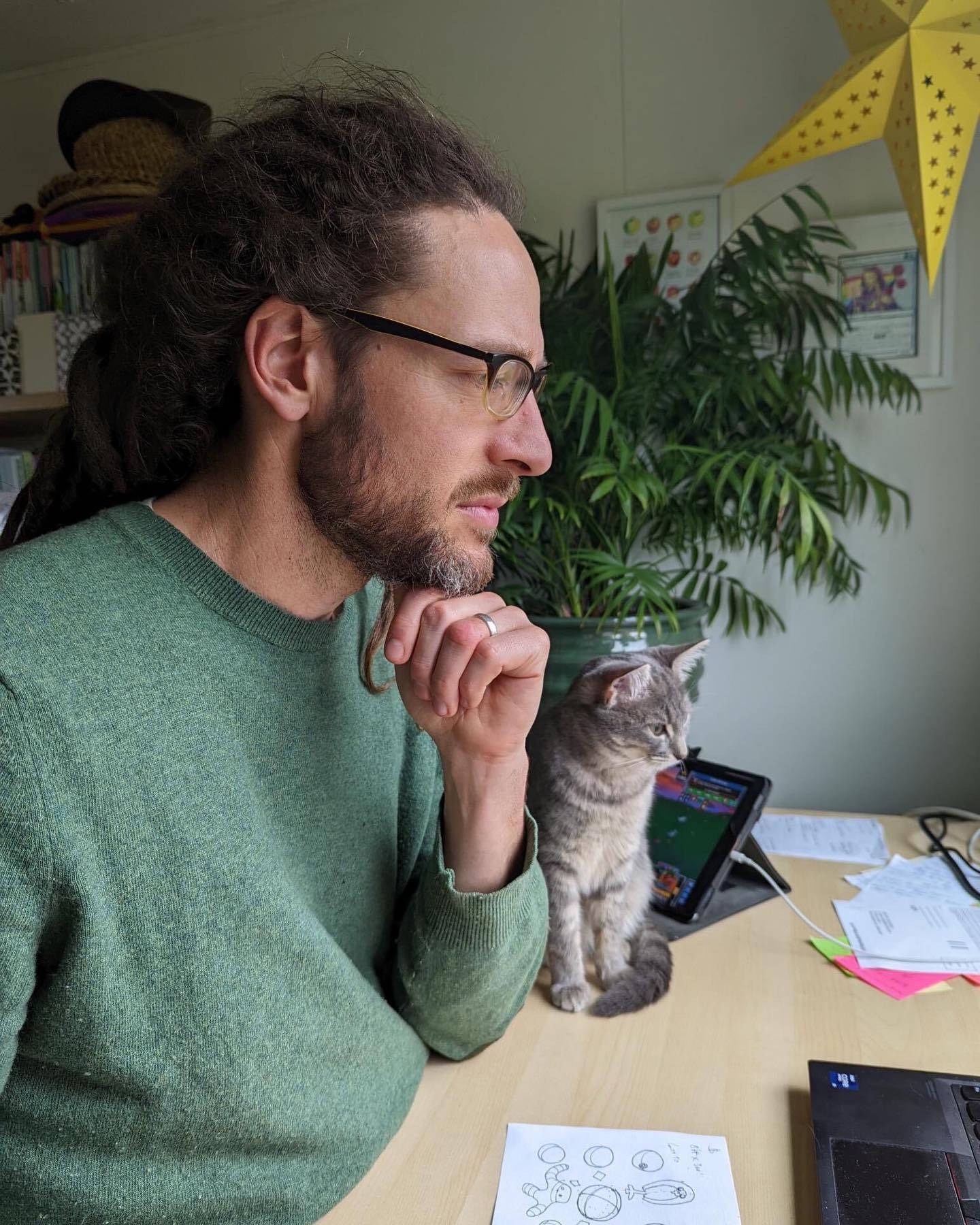
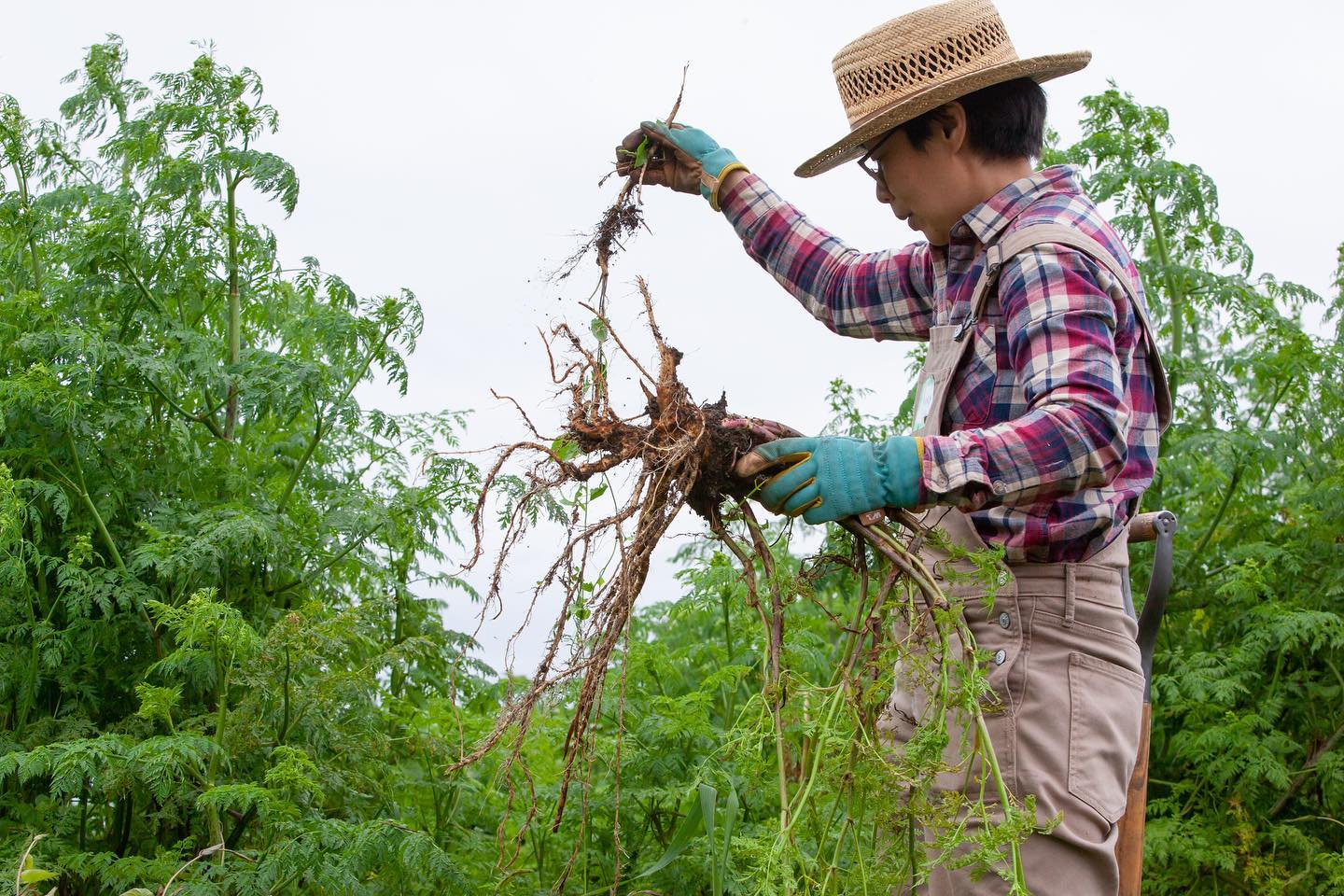
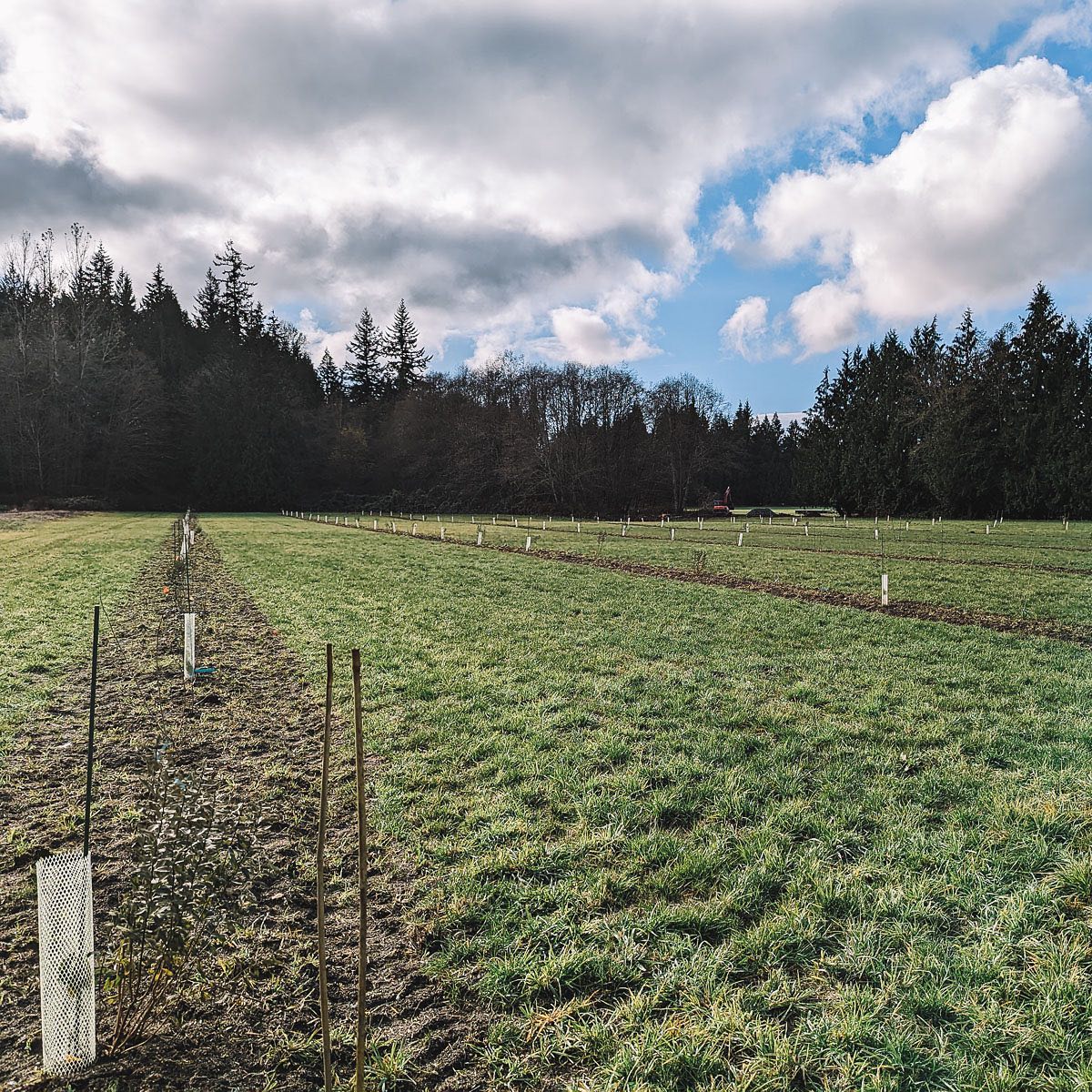
The ethics of permaculture are care of earth, care of people, and fair shares or redistribution of surplus, ethics which are baked into the Rooted NW project. One of the community values is ecological stewardship, with taking care of the planet being a priority. Dave emphasized that caring for the earth does not have to mean ignoring the needs of people, which is a mistake which has alienated people from the environmental movement. “We have to move away from the sort of toxic notion that humans are evil and the only way to protect the environment is to eliminate the humans or push the humans into a little box, everybody go live in your city,” said Dave. The human desire to seek natural settings and ecological health don’t necessarily have to be in conflict, he added. “We need to look for sensible ways to inhabit the rural environment and I do believe that if you look at humans as having the potential to be stewards of the land then more stewards in contact with more land is a good thing.”
Caring for people looks like providing economic opportunities for them as well as creating built-in community. “It’s a radically different life when you live as a member of a community who’s interacting with other people. Like, if you’re an elder, instead of just being forgotten you still have kids running around and you’ve got people checking on you and you’ve got connections.”
The fair share piece is addressed by Rooted NW through a focus on inclusion and diversity with their members. They are exploring the obstacles that people face in order to be able to participate in the community and doing what they can to address them while fully acknowledging their limitations in solving inequity problems.
When I asked for any book or podcast recommendations, Dave thought for a moment. “It might sound weird, but I would honestly say getting some field guides and a pair of binoculars might be more valuable than picking up a permaculture book,” he said. “If you can start to learn and interface with the world around you and start to get a better understanding for what’s going on, that might do more to help you connect with the ecology and the natural sphere than anything else I can think of.”
Dave’s passion for permaculture and building an innovative agricultural community through time-tested models shone throughout our brief talk. His attitude toward people as a positive force for planet health is refreshing and empowering, and he models what he teaches. “The concept of ‘leave no trace’,” he mused, “it’s an awesome concept for when you’re backpacking, but not the concept you want to apply to where you live. If you’ve left no trace, if you’ve left nothing but footprints, how have you improved the planet, how have you improved everything around you if you haven’t done anything? I want to leave a big footprint; I want to leave a big impact and I want it to be a positive one. I believe that people have the power to do that.”
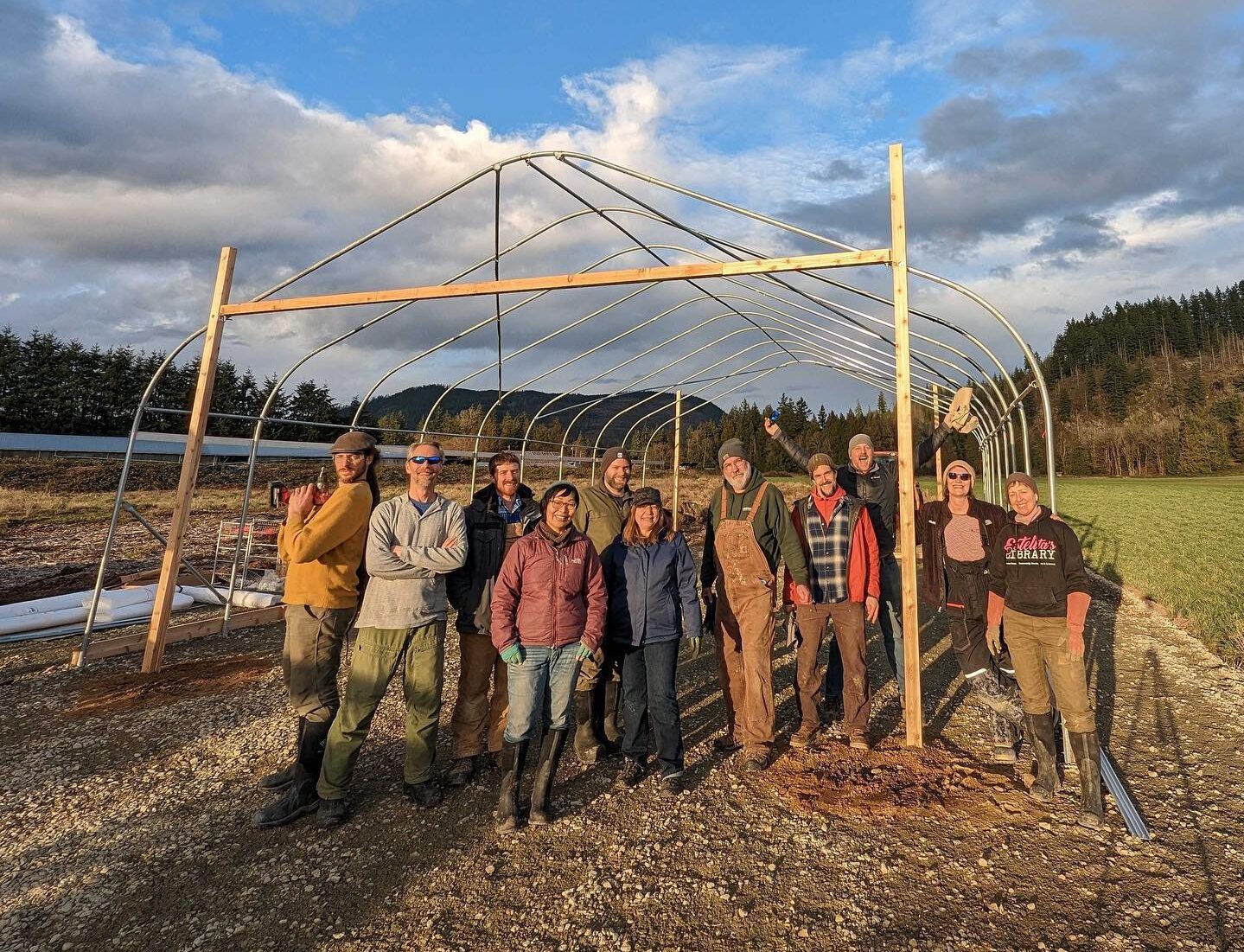
Dave Boehnlein
“With permaculture, we approach agriculture from a holistic lens: we want to make sure that the solutions we find are not creating new problems.”

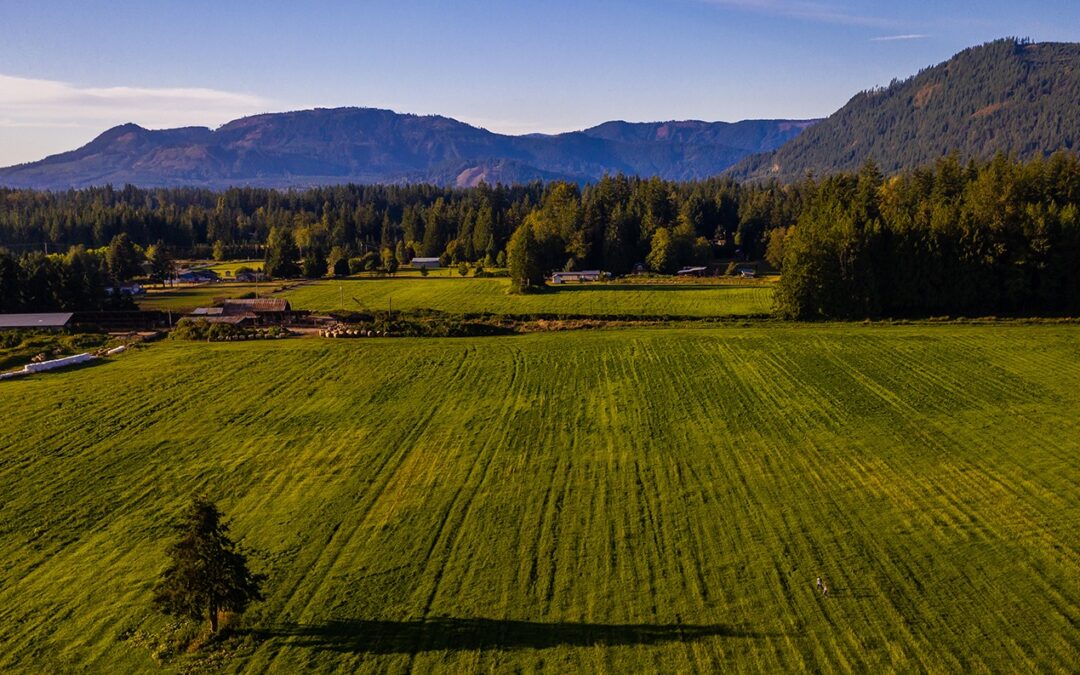
0 Comments